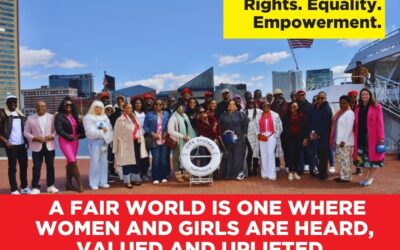Key Note Address by Ide Owodiong-Idemeko (NAS Cap’n) to the Feast of Barracuda Lecture 18th of May 2013 in Amsterdam, Netherlands.
I recall that 4 years ago, precisely in 2009, I was invited as Guest Speaker at the Feast of Barracuda event of the National Association of Seadogs (NAS), Netherlands Chapter. At that event, I reviewed the state of Nigeria’s 10 Years’ experience with electoral democracy. 4 years since then, I am once again privileged to address Seadogs and guests at yet another Feast of Barracuda event, although this time in a special capacity as the NAS Cap’n, which in common parlance refers to the global president of NAS. I wished I could be with you all physically but other activities requiring my attention have made this impossible.
The subject of official corruption has been a monstrous cancer destroying the African continent and her people; Nigeria has not been an exception. Since the early days of independence from our colonial overlords, corruption began to rear its ugly head and was a major reason adduced for the first military coup in the country in 1966. Behind that first coup came more coups all in the name of fighting corruption but unfortunately, corruption became more entrenched and deep seated with each military intervention. Today, official corruption in Nigeria bestrides the country as a “Field Marshal” in the garrison of exceptions, becoming the norm rather than the exception.
Official corruption has destroyed the country, milking it dry and leaving in its wake, a poverty stricken population unable to defend itself from this debilitating cancer. Take a walk around your immediate Nigeria environment where your local councillors reside, take a ride to the local government council, take a drive to your State’s seat of power and if you can afford it, take a flight to Aso Rock, all you will see on your way and at your final destination is the concerted zeal foster and breed corruption. From the Police checkpoints to the Security men at the airports to the Receptionist at the Government Office; everywhere, you will find yourself being hounded to part away with some ‘dash’, ‘egunje’ or gift. Corruption has become a major criterion for political parties to select (not elect) a candidate for a position to be contested for. You would have to prove and possibly make an undertaking that when you are finally ‘selected’ for the position, you would have to make returns to those who funded your campaign as primary investors by syphoning government funds into their private pockets.
Nigeria needs external help in fighting the corruption that the country is presently enmeshed. Fighting official corruption from within Nigeria has become so risky and dangerous, because official corruption has been institutionalized and cartels of official corruption have been established to fight back against those who fight corruption. As the former Nigerian Anti-graft Czar, Mallam Nuhu Ribadu attested, “if you fight corruption, corruption fights back”. Of course, Nigerians in diaspora are critical to this phase of the struggle to bring our kleptocratic leaders to justice, especially, when you consider the opportunities open to them to influence foreign governments and countries to take positive action against corrupt Nigerian leaders.
Now, don’t get me wrong; I do recognize that fighting official corruption from the diaspora is not necessarily an easy task, considering that some unscrupulous countries, companies and banks around the world aid and abet corrupt leaders from third world countries like Nigeria to loot the commonwealth and conceal these loots in far away countries. Some of the countries where the stolen funds had been traced to include, Switzerland, the United Kingdom, the United States, Liechtenstein, and Luxembourg just to mention a few. For example, N3.2 Trillion ($18 Billion) loot stolen by the erstwhile Nigerian Head of State, Late General Sanni Abacha Loot was uncovered in foreign accounts of banks in France and Switzerland. Transparency International in its 2011 report on global oil and gas companies stated that the Nigerian Oil Company is one of the eight most corrupt national oil and gas companies in the world.
One way to fight official corruption from the diaspora is to name and shame those responsible and this could be a prelude to developing a transparent system of governance at all levels. Corrupt officials should be identified and their names made public to the international community. A typical example that comes to mind is a former State Governor serving jail term in one of the prisons in the United Kingdom. Another one was lucky to have jumped bail and escaped back home and was recently granted State Pardon for “an escape well done”. This pardon has turned out to be the height of Government irresponsibility and insensitivity to the fight against official corruption.
Another way to fight official corruption from the diaspora would be what countries like the United Kingdom, USA and probably the EU is doing; slam travel bans on leaders suspected of being corrupt and deny them access to medical facilities abroad. In addition, dependents of corrupt Nigerian leaders should be banned from accessing education institutions abroad. These types of actions have worked all over the world and it is time our country Nigeria is put under the searchlight. I urge you all to consider these issues as you deliberate the subject of official corruption during this year’s Feast of Barracuda.
Happy deliberations and God Bless the Federal Republic of Nigeria.
Ide Owodiong-Idemeko
NAS Cap’n, May 18, 2013

![[PRESS RELEASE] AFFIRMATION OF EMERGENCY RULE IN RIVERS STATE THROUGH “AYES AND NAYS”](https://www.nas-int.org/wp-content/uploads/2025/03/National-Assembly-Ayes-and-Nays-400x250.jpeg)

